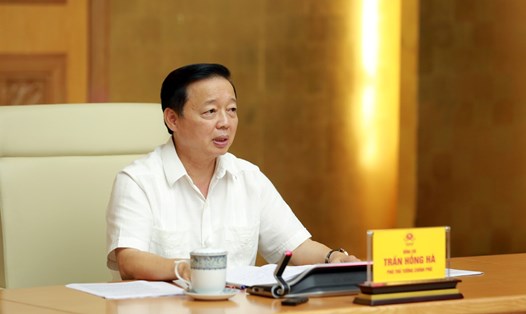The Government has just issued Decree No. 135/2024/ND-CP stipulating mechanisms and policies to encourage the development of self-produced and self-consumed rooftop solar power.
This Decree stipulates the mechanism and policies to encourage the development of self-produced and self-consumed solar power installed on the roofs of construction works including houses, offices, industrial parks, industrial clusters, export processing zones, high-tech zones, economic zones, production facilities, and business establishments invested and constructed in accordance with the provisions of law.
Direct electricity trading between organizations and individuals is carried out according to the direct electricity trading mechanism between renewable energy generators and large electricity users.
Thus, Decree 135/2024/ND-CP has an expanded scope of application to all subjects such as houses, offices, industrial parks, industrial clusters, export processing zones, high-tech zones, economic zones, production establishments, and business establishments invested and built nationwide.
One of the notable contents of this decree is the policy to encourage the development of self-produced and self-consumed rooftop solar power. The decree stipulates the following incentive policies:
Organizations and individuals installing self-produced and self-consumed rooftop solar power are exempt from electricity operation licenses and have no limit on installed capacity in cases where they are not connected to the national power system.
Another case is the installation of an anti-backflow device system into the national power system; households and individual houses develop self-produced and self-consumed rooftop solar power with a capacity of less than 100kW.
Organizations and individuals installing self-produced and self-consumed rooftop solar power with an installed capacity of 1,000kW or more and selling surplus electricity to the national power system must carry out procedures on power planning and request a power operation license in accordance with the provisions of law.
Self-produced and self-consumed rooftop solar power enjoys preferential tax policies according to current tax laws.
Self-produced and self-consumed rooftop solar power of households, individual houses; offices and constructions identified as public assets are identified as technological equipment attached to construction works.
Self-produced and self-consumed rooftop solar power connected to the national power system within the capacity scale according to the planning and the plan for implementing the planning and self-produced and self-consumed rooftop solar power connected to the national power system of households and individual houses with a capacity of less than 100kW, if not fully used, can be sold to the national power system but not exceeding 20% of the actual installed capacity as follows:
Vietnam Electricity Group pays organizations and individuals for the excess electricity output generated to the national power system, but not exceeding 20% of the actual installed capacity;
The price of buying and selling surplus electricity to the national power system is equal to the average market electricity price in the previous year announced by the power system and electricity market operator to ensure appropriate incentives in each development period of the national power system.
Self-produced, self-consumed rooftop solar power installed on the roof of a construction site that is an office or a construction site identified as a public asset does not purchase or sell surplus electricity.
Households and individual houses developing rooftop solar power for self-production and self-consumption are exempted from or do not have to adjust their business licenses.







